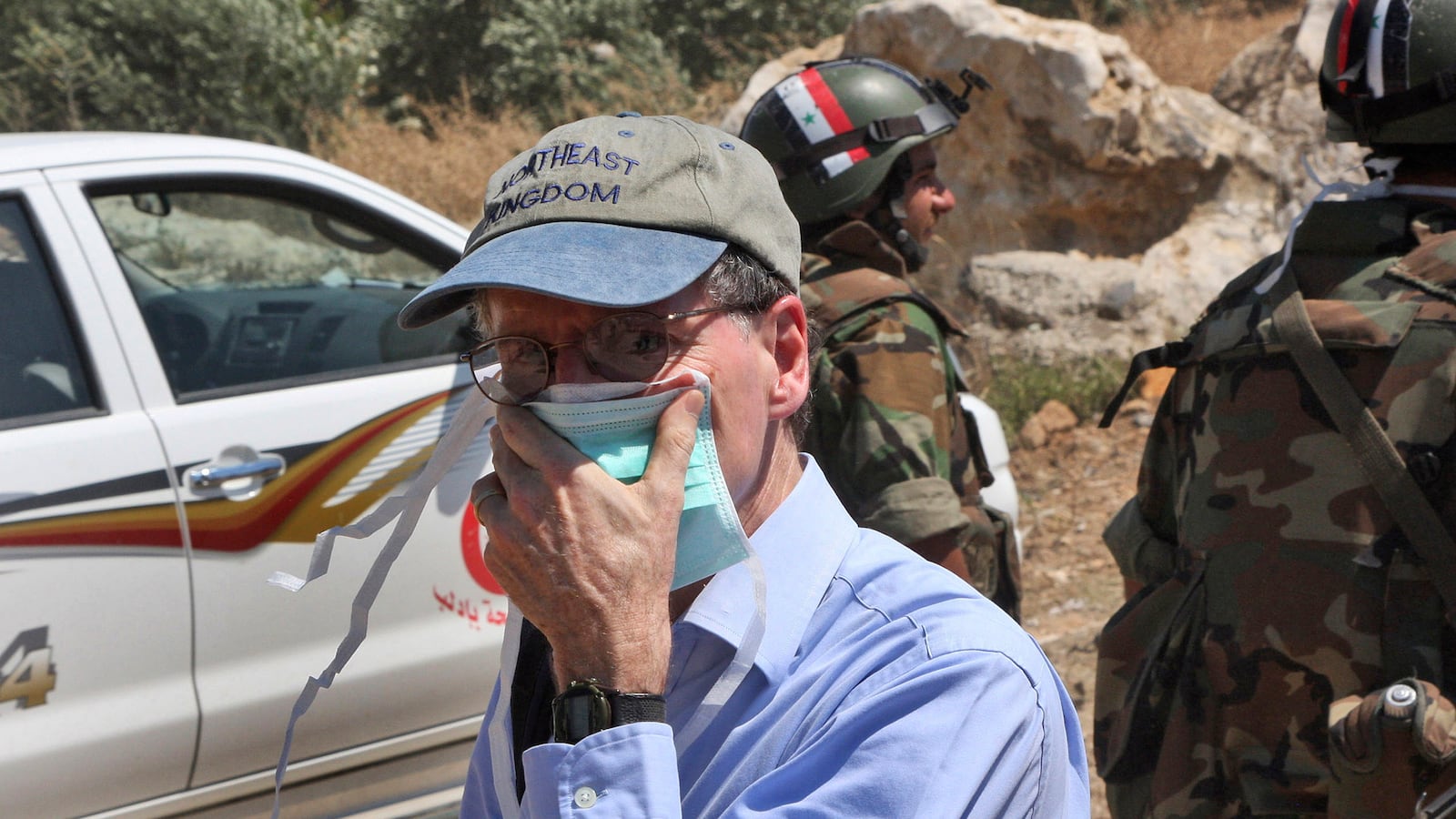Two years ago, before the outbreak of the Syrian civil war, U.S. Ambassador Robert Ford drove from Damascus to the city of Hama to witness a huge protest. Thousands of demonstrators opposed to the dictatorship of President Bashar al-Assad had turned out in the streets. Some waved olive branches; others greeted Ford with flowers.

It was a desperate moment, but still a hopeful one. Later, once chaos and bloodshed had been unleashed, the Assad regime and its flunkies tried to blame Ford and his employer for much of the evil that befell the country. And in early 2012, after attacks on the embassy in Damascus, Washington told the ambassador to shut the door and take down the flag. Since then, Ford has served as the envoy in exile to the fractious Syrian opposition.
Now it appears likely that President Obama will point to Ford as the next ambassador to Egypt.
When rumors of his nomination first surfaced last week, so did a Facebook page denouncing him as if he were, personally, the source of subversion all over the Middle East. In fact, Ford is one of the State Department’s premier Arabists, which has ever been a thankless job. He is fluent in the language, deeply conversant with the customs, and experienced in many corners of the region, from Bahrain to Algeria to Iraq.
But it may be a sign of things to come. The often-irrational ire that some Egyptians have focused on the current envoy to Cairo, Anne Patterson, is likely to look tame by comparison. And given the current tumult in the region, the Senate confirmation hearings for Ford and for Patterson, nominated to be assistant secretary of State for Near East affairs, may well turn into inquisitions about the Obama administration’s Mideast policy, or lack thereof. The refrains of “who lost Syria” and “who lost Egypt” can already be heard.
Republican Sens. John McCain and Lindsey Graham are in Cairo right now, ostensibly trying to help calm the chaotic situation since mass demonstrations and military intervention overthrew the elected Islamist government of President Mohamed Morsi last month. Whether McCain and Graham will come away with more appreciation for the job diplomats face there, or less, we’ll have to wait and see.
Patterson, for her part, has received the best career ambassador award from the State Department twice, and served as ambassador to Pakistan (no easy task) before heading to Egypt. In Cairo since 2011, she has had to try to cope with some of the most revolutionary developments ever seen in the land of the pharaohs while being second-guessed by Foggy Bottom, the White House, and Capitol Hill.
“Egypt is a very challenging assignment, and she did her best to carry out administration policy,” says her friend Jane Harman of the Woodrow Wilson International Center for Scholars. “I visited four times and saw her efforts to work with all sides and especially to nudge a recalcitrant Muslim Brotherhood government to include other parties.” Harman, a former member of Congress, says that despite the controversy, she expects Patterson to be confirmed in her new senior State Department position.
Ford’s professionalism may help him with the Senate as well. Although he comes across as a cool, almost cold diplomat, he’s earned respect by taking one extremely tough assignment after another. In Iraq, he served in Najaf, a Shiite stronghold and home base to the then-infamous Mahdi Army, and then he took on a position as the top political officer at the embattled embassy in Baghdad in the bleak years from 2004 to 2006.
“He was well-informed, and articulate, and at all times a realist,” says Robert Callahan, another American diplomat who served with him there. “He was under no illusions about the difficulty, if not the near impossibility, of establishing true democracy in Iraq, and correctly measured success in tiny increments. He was not shy about speaking truth to power.”
Callahan remembers Ford’s energy as he spent very long days in the office—and out of it. “Despite the danger, he got out relatively often,” says Callahan, who was the chief spokesman for the embassy. “He was personally brave, as I think his career would indicate. He has had some tough assignments and continues to take them.” Callahan said Ford has earned the civilian grade equivalent of a two-star general—“a rank he's earned by taking all these hard and dangerous postings.”
And like Patterson, Ford has won his share of formal accolades. One of the most distinguished, given by the John F. Kennedy Library Foundation in 2012, is the Profile in Courage Award.
Courage, and a great deal of diplomacy, is precisely what he’ll need in Cairo—and on Capitol Hill.






